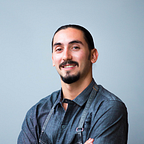Mombacho Café Story
I was super lucky to be invited to a family friend’s wedding in Nicaragua, February 2016, and couldn’t pass up the opportunity. Nicaragua has become a big tourist destination in the last few years and it’s not hard to understand why. Quaint, vibrantly painted homes line the streets, there’s a beautiful church on every corner, lush nature surrounds, and incredible food wafts from open cafés and street vendors at every turn.
We had a free day before the wedding and decided to visit Granada, a medium-sized town at the base of the majestic Mombacho Volcano. We wanted to make the most of our time there, so we checked with the concierge at our hotel and they hooked us up with a guide named Carlos. He took us on an amazing all day hike, through flower filled jungles to a beautiful coffee plantation high up the volcano. The plantation is within one of numerous nature preserves in the area, and was a wonderful reminder of the importance of living peaceably and sustainably amidst the land that nurtures.
Once off the volcano and back in town, the taste of espresso still on my lips, I filled my mouth with citrus adobo grilled pork; nactamal, a tamale-like specialty; and vigoron, a slaw made with cabbage, yucca and chicharrón. The flavors were intense! As I indulged my giant weakness for street food, Carlos told us of a time when all was not so peaceful in paradise. Nicaragua suffered great devastation during its revolution throughout the 1980’s. Fighting between leftist liberal democratic revolutionaries (Sandinistas) and right-wing anti-revolutionary forces (Contras) filled the streets. He was a small child during this time, and didn’t understand what the war meant, just that he couldn’t go out alone, and that gunfire was often heard in streets in front of his house. One day while playing soccer in the yard, machine gunshots rang out and Carlos ran to take cover. Three bullets hit him in his side and he was rushed to the emergency room, barely escaping death. The Nicaraguan Revolution lasted from 1978–1990 and 40,000 people died, leaving the country ravaged. As intense of a story it was, he recounted it with a huge smile on his face. He even pulled up his shirt to show his scars. As he grew older and was able to face the past and embrace his hardships, he realized that is what makes him Nicaraguan, that his scars make him strong. He now has small children of his own and is grateful to be raising them in a time of peace, dealing with the normal hardships of Nicaraguan life with a smile on his face. Carlos exudes positivity, is proud of his country, its beauty and cultural offerings, and dedicates himself to teaching tourists like me how precious it is.
